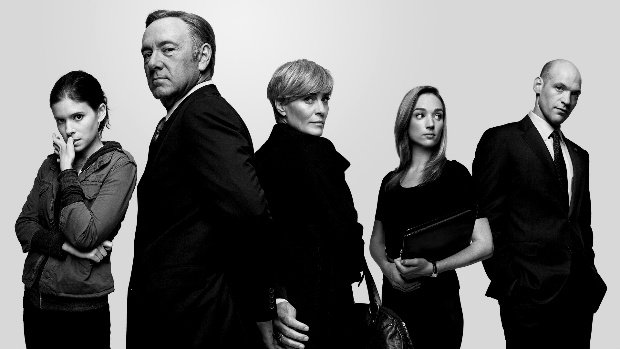 When Netflix entered the Irish market in January 2012 it began publishing a monthly chart of how its service was performing across the country’s seven Internet service providers (ISPs). It’s always a fun read and this year has seen a slight realigning of services as UPC displaced Magnet as the fastest ISP for Netflix customers in May. The most recent chart shows a ‘fat middle’ of Vodafone, eircom and Digiweb, with Imagine a distant last place. I had considered the chart a mischievous source of trivia but now it seems Netflix’s policy of antagonising ISPs is not about consumer advocacy, but part of a strategy designed to bring broadcast quality to online media. And it can’t happen fast enough.
When Netflix entered the Irish market in January 2012 it began publishing a monthly chart of how its service was performing across the country’s seven Internet service providers (ISPs). It’s always a fun read and this year has seen a slight realigning of services as UPC displaced Magnet as the fastest ISP for Netflix customers in May. The most recent chart shows a ‘fat middle’ of Vodafone, eircom and Digiweb, with Imagine a distant last place. I had considered the chart a mischievous source of trivia but now it seems Netflix’s policy of antagonising ISPs is not about consumer advocacy, but part of a strategy designed to bring broadcast quality to online media. And it can’t happen fast enough.
Last month, Netflix introduced its commercial muscle to the net neutrality debate in the US when it revealed it would be paying to access Comcast’s network directly in order to deliver better picture and sound quality to its subscribers. The move has been jumped on by neutrality advocates as a challenge to an open and free Web that could see what should be a regulated amenity treated as a commodity where quality of service is guaranteed by what services are prepared to pay for access to a ‘fast lane’. Comcast’s attempt to spin this as the creation of a “fast lane and a hyperspeed lane” was skewered on John Oliver’s satirical HBO show Last Week Tonight in an episode that led to a protest resulting in the crashing of the Federal Communication Commission’s website. The genius of Netflix’ position is that it is still paying for network access, while coming across as a consumer watchdog.
The combination of ‘pay to play’ and PR spin is proving effective to the point where Netflix is becoming properly annoying. Last week, it was issued with a ‘cease and desist’ letter by Verizon over warning messages appearing on loading pages saying the network was struggling to keep up with user demand. Verizon disputed the claims but Netflix hasn’t ceded to its requests to take down the warnings and has no plans to do so. Don’t be surprised if you start to see similar warnings about your ISP soon.
Discontent with content
Why spend so much time naming and shaming service providers? For one, Netflix needs them to be able to handle its growing network load. In Ireland, that means servicing a subscriber base of 175,000 people, many of which are still on broadband connections of less than 10Mb/s. In 2012, Netflix’s basic network connection for standard definition streaming was a modest 500Kb/s. Now, recommended speeds start at 3Mb/s for standard-definition, 5Mb/s for high-definition, and 25Mb/s for Ultra HD 4K. Pricing has also fragmented, with a new three-tiered structure based on image quality and simultaneous multi-device viewing rolling out.
It’s no co-incidence these pricing bands look like cable TV subscription packages. Netflix has made no secret of its intended competitors. Speaking to TechRadio two years ago, CEO Reed Hastings made no secret of his ambitions for Netflix as a competitor to subscription channels like Sky Atlantic/HBO/AMC etc.. Matching that means getting the same signal quality (hence the pressure on ISPs and the release of certain titles in 4K) and a more problematic element: content.
Netflix has done so well with serialised programmes (Lilyhammer, House of Cards and Orange is the New Black all received second series) and documentaries (The Square was nominated for an Oscar) that Amazon, Xbox, Sony and Yahoo are following suit. Netflix won’t be troubled by the competition from online services but it should be concerned about maintaining some level of quality control with its movie catalogue, which is easily surpassed by Xbox Live and Apple that regularly secure releases concurrent with DVD. Focusing on serials over features sidesteps this problem.
Netflix’ aim of becoming your next favourite broadcaster is unchanged but that means coming up with new ways to make its audience demands someone else’s problem. Well played.








Subscribers 0
Fans 0
Followers 0
Followers